Even the gentlest-looking dogs can develop behavioral issues that catch owners unprepared.

Any dog, regardless of breed, can develop behavioral problems under certain circumstances. While breed generalizations can be misleading, understanding potential challenges helps owners provide better training, socialization, and care. Most behavioral issues stem from inadequate exercise, poor socialization, lack of training, or underlying medical conditions rather than breed-specific aggression.
The key is recognizing early warning signs and addressing them through proper training, veterinary care, and sometimes professional behavioral help. With the right approach, most dogs can become well-adjusted family members regardless of their breed background.
1. Golden Retrievers can develop resource guarding if not properly trained.
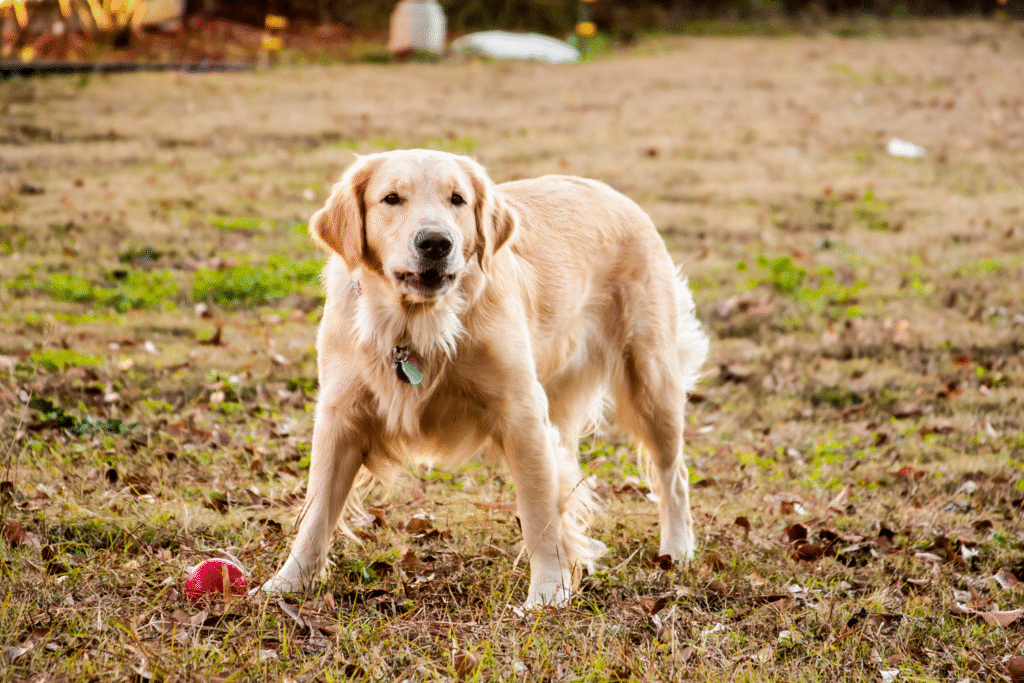
Golden Retrievers generally have excellent temperaments, but like any breed, they can develop behavioral issues without proper guidance. Resource guarding around food, toys, or favorite spots can emerge, particularly if dogs haven’t learned to share from an early age. According to the American Veterinary Medical Association, bite incidents involve dogs from all breeds, with factors like socialization and training playing larger roles than breed alone.
Early training helps prevent resource guarding by teaching dogs that humans approaching their food or toys means good things happen. Most Golden Retrievers respond beautifully to positive reinforcement training. Signs to watch for include stiffening around food bowls, growling when approached during meals, or possessiveness over toys, all of which can be addressed with consistent training.
2. Cocker Spaniels may need extra attention for behavioral stability.
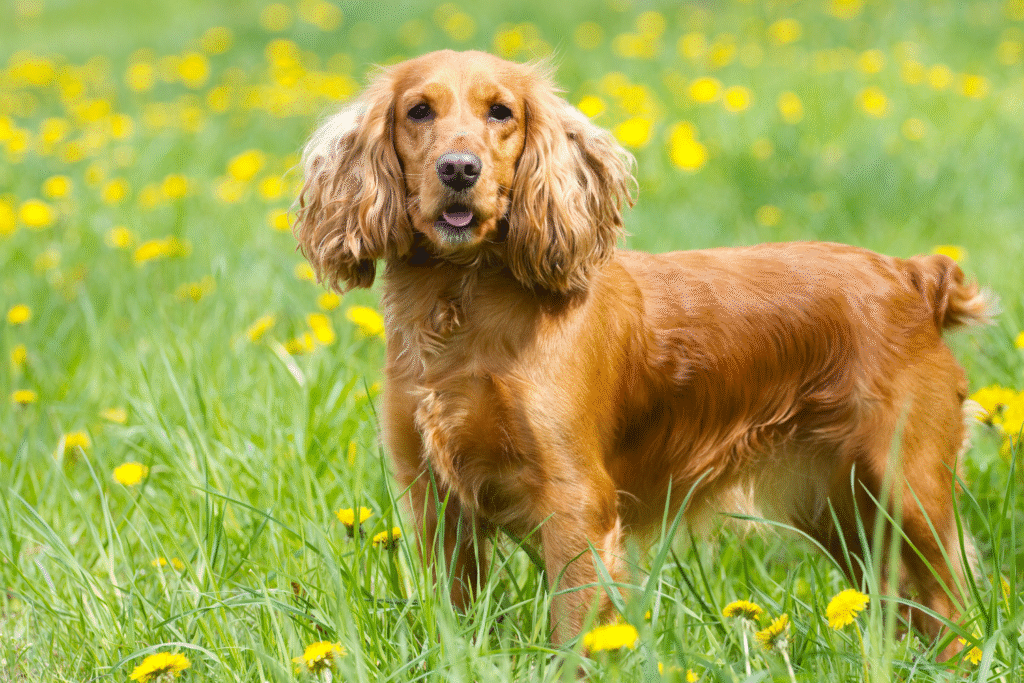
Some Cocker Spaniels can develop behavioral issues, though serious problems like rage syndrome are quite rare. Most behavioral challenges in Cockers stem from inadequate socialization, lack of exercise, or underlying health issues like ear infections that cause discomfort. Proper breeding practices that prioritize temperament alongside appearance help reduce behavioral problems, as reported by canine behavior specialists.
These dogs benefit from regular grooming to prevent painful matting, consistent training routines, and adequate mental stimulation. Early socialization with various people, situations, and handling helps prevent fearfulness that can lead to defensive behaviors. Most Cocker Spaniels make wonderful family pets when their needs for exercise, grooming, and social interaction are met.
3. Labrador Retrievers need substantial exercise to maintain their famously stable temperaments.
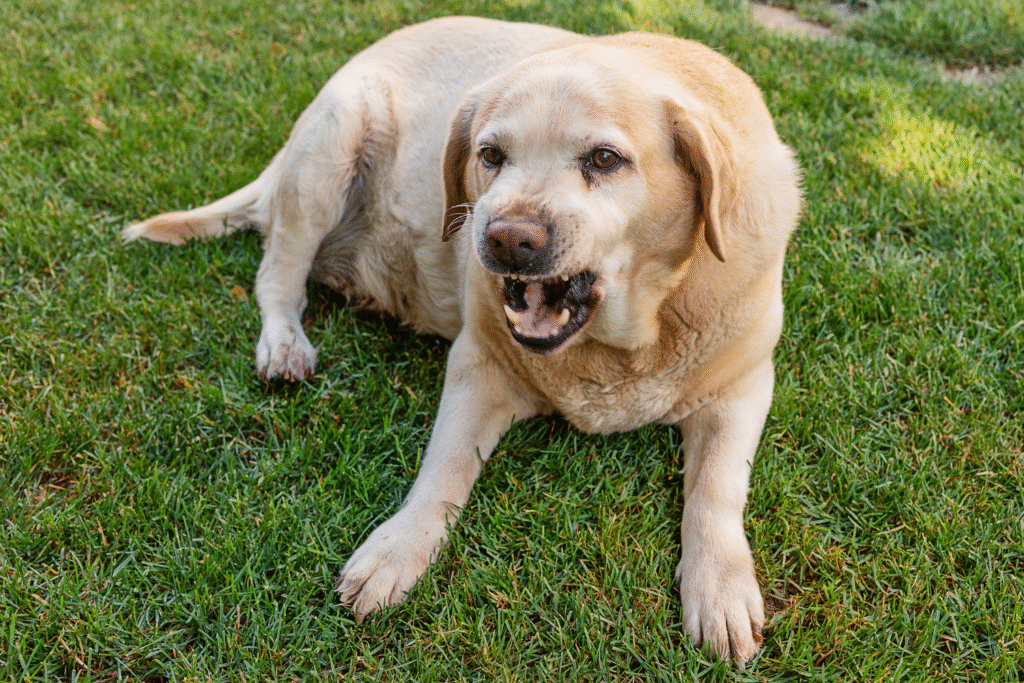
Labs require significant daily exercise and mental stimulation to stay behaviorally sound, but most behavioral issues resolve with adequate activity and training. Under-exercised Labs may develop destructive behaviors, excessive barking, or become overly boisterous, but true aggression remains uncommon in well-bred, properly cared for dogs. As discovered by animal behavior researchers, providing appropriate outlets for energy significantly reduces behavioral problems across all breeds.
These athletic dogs were bred for demanding work and need jobs to do, whether that’s retrieving games, long walks, or puzzle toys that challenge their minds. Most Lab behavioral issues stem from boredom rather than aggression. Regular exercise, consistent training, and mental stimulation typically resolve most problems, making Labs excellent family companions.
4. Cavalier King Charles Spaniels benefit from gentle handling and health monitoring.
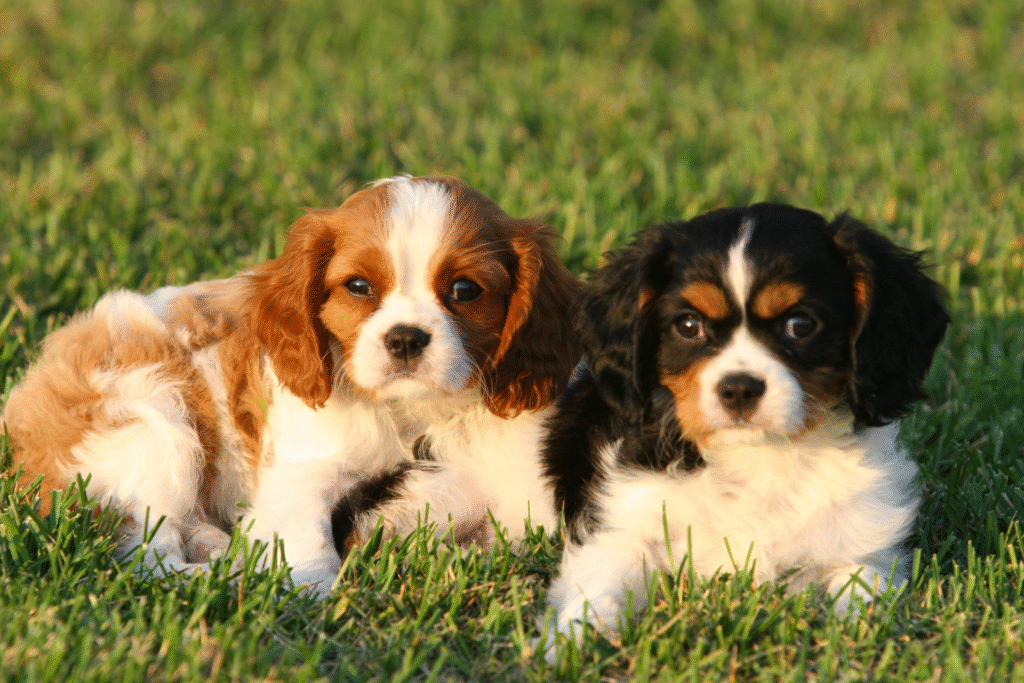
These gentle dogs can develop behavioral changes if they’re experiencing pain from neurological conditions that affect some lines of the breed. Sleep startling or defensive behaviors may indicate underlying health issues that need veterinary attention. Regular health screenings help identify conditions like episodic falling or curly coat syndrome that can affect behavior.
Most Cavaliers are exceptionally gentle with children and make wonderful therapy dogs when properly socialized. Teaching children to approach sleeping dogs gently benefits all breeds, not just Cavaliers. These dogs typically respond well to positive training methods and gentle handling throughout their lives.
5. Border Collies need appropriate outlets for their intense herding instincts.
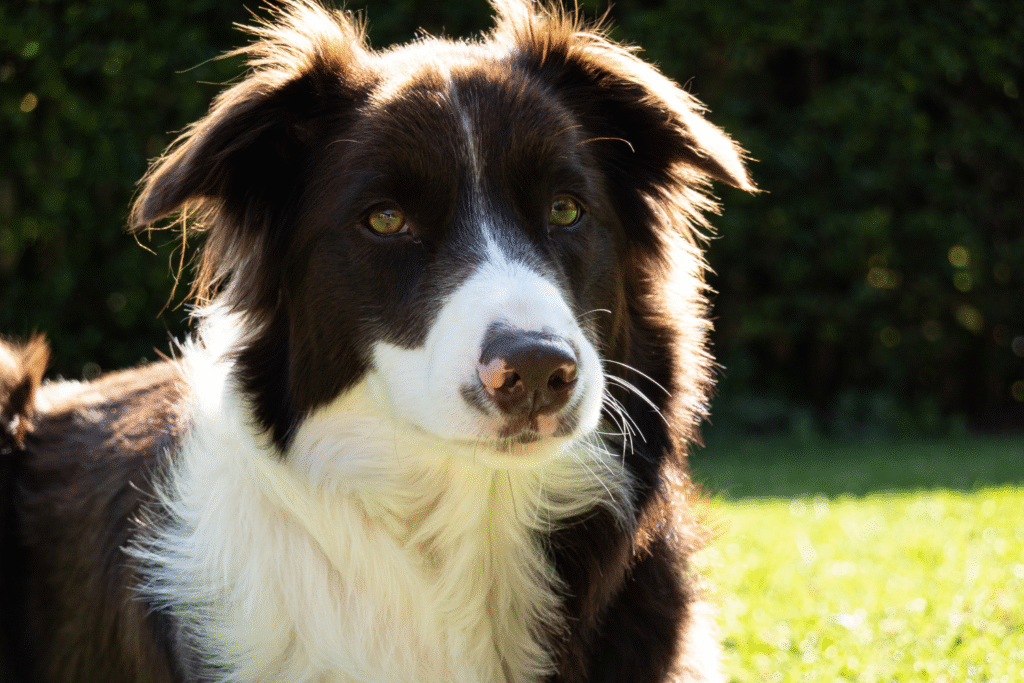
Border Collies were bred for intense work and need substantial mental and physical stimulation to prevent behavioral problems. Without appropriate outlets, they may redirect herding behaviors toward family members, but this typically involves gentle nipping rather than aggressive biting. Their intelligence makes them highly trainable when given proper guidance.
These dogs excel in activities like agility, herding trials, or advanced obedience training that engage their minds and bodies. Redirecting herding instincts toward appropriate activities usually resolves any problematic behaviors. Most Border Collies form strong bonds with their families and respond well to consistent, positive training methods.
6. Shetland Sheepdogs may need help managing sensitivity to environmental changes.
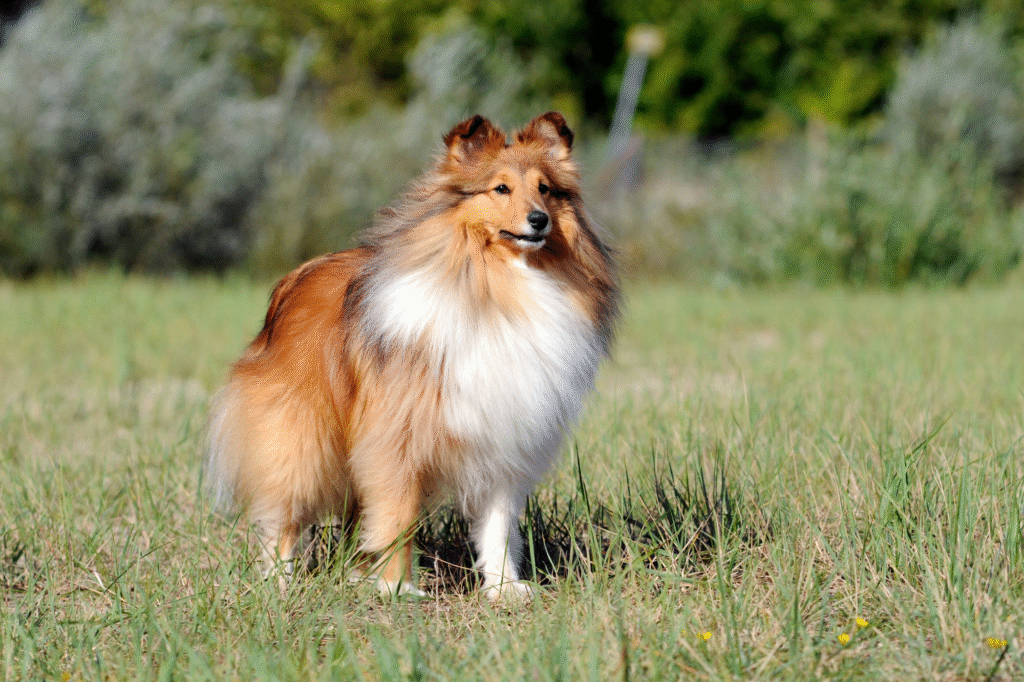
Shelties can be sensitive dogs that benefit from gradual exposure to new experiences and consistent routines. Some may become anxious with sudden changes, but this typically manifests as withdrawal or stress signals rather than aggression. Their herding background makes them naturally alert to their environment.
These intelligent dogs usually respond well to confidence-building exercises and gradual socialization programs. Teaching them to cope with routine changes through positive training helps build resilience. Most Shelties are gentle with children and make excellent family companions when their sensitivity is understood and managed appropriately.
7. Basset Hounds may guard their food if not taught proper meal manners.

Basset Hounds can develop food guarding behaviors if not trained from puppyhood to accept human presence during meals. Their hunting background may contribute to possessiveness around resources, but this is easily prevented through proper training. Teaching “wait” commands and hand-feeding exercises help prevent food guarding.
Most Basset Hounds are gentle, laid-back dogs that get along well with children and other pets. Food guarding prevention involves teaching dogs that human hands near food bowls predict good things happening. Early training and consistent meal routines typically prevent any food-related behavioral issues.
8. English Springer Spaniels benefit from consistent training and health monitoring.
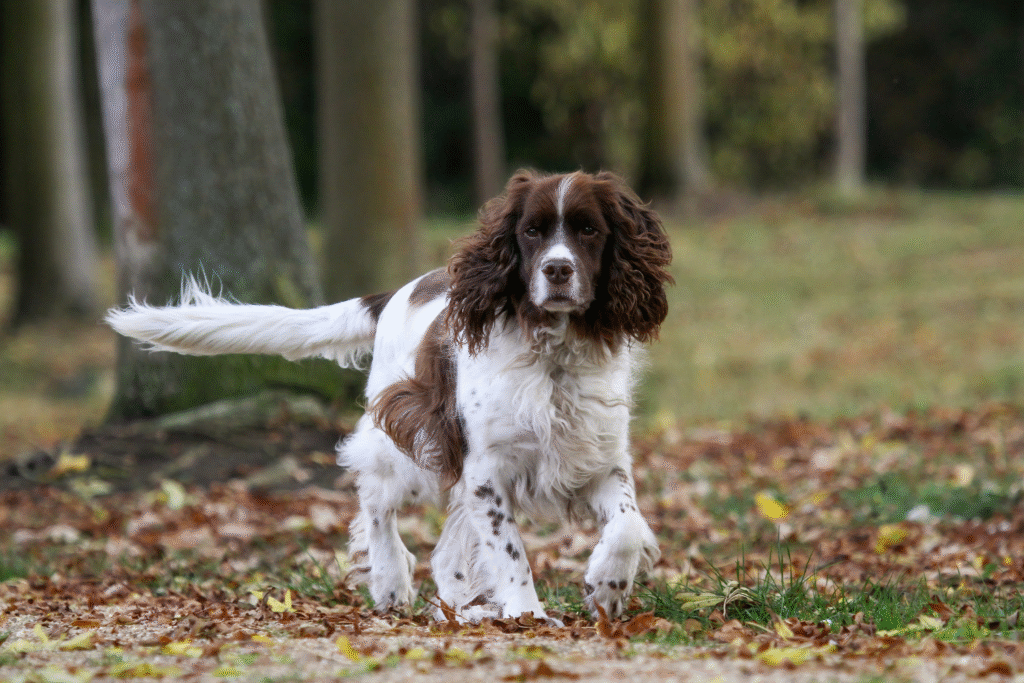
English Springer Spaniels are generally stable, friendly dogs, though some lines may carry genetic predispositions to behavioral issues. Most behavioral challenges stem from inadequate exercise, poor socialization, or underlying health problems. Regular veterinary care helps identify any medical issues that might affect behavior.
These active dogs need regular exercise and mental stimulation to stay balanced. They typically respond well to positive training methods and enjoy having jobs to do. Most Springer Spaniels make excellent family pets when their exercise and training needs are met consistently.
9. Australian Cattle Dogs need experienced owners who understand their working heritage.

These intense, intelligent dogs were bred for demanding livestock work and need owners who understand their drive and energy requirements. Without appropriate outlets, they may become frustrated and develop behavioral problems, but proper management prevents most issues. Their loyalty and trainability make them excellent companions for active families.
Australian Cattle Dogs excel in activities like agility, herding, or advanced obedience training that challenge their minds and bodies. They need consistent leadership and clear boundaries from puppyhood. Most behavioral challenges resolve when these dogs receive adequate exercise, training, and mental stimulation.
10. Dalmatians require early socialization and consistent training like all breeds.

Dalmatians need proper socialization and training to develop into well-adjusted family pets. Some lines may have higher rates of deafness, which requires specialized training approaches but doesn’t necessarily create behavioral problems. Their high energy and athleticism need appropriate outlets through exercise and activities.
These distinctive dogs can make wonderful family companions when their exercise needs are met and they receive consistent training. Early socialization helps prevent territorial behaviors. Most Dalmatians are friendly, outgoing dogs that enjoy being part of active families.
11. Weimaraners need plenty of exercise and may develop separation anxiety without proper conditioning.

These athletic hunting dogs form strong bonds with their families and may develop separation anxiety if not gradually conditioned to alone time. Their high energy and intelligence require substantial daily exercise and mental stimulation. Most behavioral issues resolve with adequate activity and gradual alone-time training.
Weimaraners typically respond well to positive training methods and enjoy having jobs to do. Teaching independence gradually from puppyhood helps prevent separation anxiety. These dogs usually make devoted family companions when their exercise and companionship needs are understood and met.
12. Chow Chows benefit from early socialization and experienced handling.

Chow Chows can be naturally reserved with strangers and benefit from extensive early socialization to develop confidence around new people and situations. Their independent nature requires patient, consistent training rather than harsh methods. Most are loyal family companions when properly socialized.
These dignified dogs typically bond strongly with their families while remaining aloof with strangers, which is normal breed behavior rather than aggression. Respecting their space preferences and providing positive socialization experiences helps them develop into well-adjusted pets.
13. Standard Poodles are highly intelligent and need mental stimulation to prevent boredom.

Standard Poodles are generally excellent family dogs with stable temperaments. Their high intelligence means they need mental challenges to prevent boredom-related behavioral problems. These athletic dogs also require regular exercise to maintain their typically calm, friendly demeanor.
Most Poodles respond exceptionally well to positive training methods and enjoy learning new skills. Their intelligence and eagerness to please make them highly trainable. Providing adequate mental stimulation through training, puzzle toys, or dog sports typically prevents any behavioral issues.
14. Akitas need experienced owners who understand their independent, protective nature.
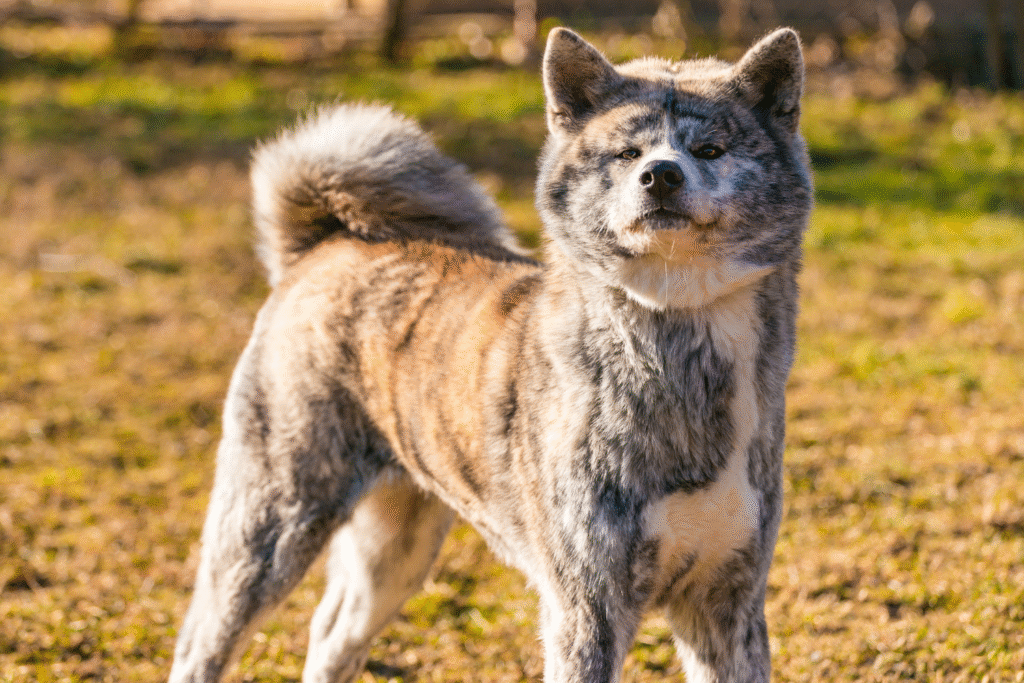
Akitas are naturally protective and independent dogs that need experienced handling and extensive early socialization. Their loyalty to family combined with wariness of strangers requires careful management in social situations. Most are gentle with their families when properly raised and socialized.
These powerful dogs need consistent, respectful training that acknowledges their independent nature. Early socialization helps them distinguish between normal social interactions and genuine threats. Most Akitas make devoted family guardians when their needs are understood and met appropriately.
15. Portuguese Water Dogs are active, intelligent dogs that need engagement and exercise.

Portuguese Water Dogs are generally friendly, stable family dogs that need regular exercise and mental stimulation. Their working background means they thrive when given jobs to do or activities that engage their minds and bodies. Most behavioral issues stem from inadequate exercise or mental stimulation.
These athletic dogs typically respond well to positive training methods and enjoy activities like swimming, retrieving, or agility training. Their friendly nature usually makes them good family companions when their exercise and training needs are consistently met.
